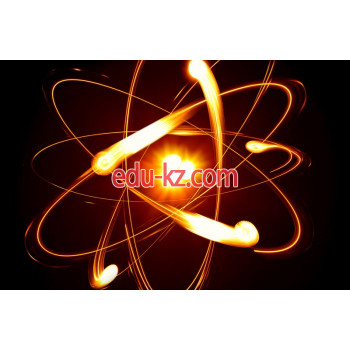5В060500 — Nuclear physics.
Specialty - 5В060500 — Nuclear physics.
Specialty - 5В060500 — Nuclear physics.
5В060500 — Nuclear physics. A very challenging specialty due to which students get the opportunity to contact with electrical installations, deal with design, to apply knowledge in nuclear and atomic science, manufacturing and scientific research. For entry to the profession, the graduate school must have the diploma about the termination of 11 classes or a diploma of secondary special education. The graduate of this specialty is awarded the academic title bachelor of science of Nuclear physics.
Specialty nuclear physicist has both several advantages and several disadvantages. Of the disadvantages can be listed the difficulty of the specialty training and the first years of hard work, but the advantages here far more — high wages, involvement in new technologies and solutions, and more.
For admission to the faculty of Nuclear physics must pass in Physics, that is, to take into account points at the UNT, and, in particular, the number of points for the profile subject. In Kazakhstan in this specialty, you can enroll in the eleven different Universities. It is important to know not only the profile subject, but subjects such as History, Chemistry, Mathematics and Geography. These items will help you in the development of the specialty.
New student requires a lot of effort, because from the beginning student will do the lab work, the study of molecules, atoms, the characteristics of the various elements, devices and different formulas.
For admission to this specialty annually allocated grants 115 — 75 for 40 for the Kazakh and Russian offices.
Salaries of physicists starts from 45.000 to 350.000 KZT, depending on qualifications and experience. As a physicist, you can earn on the production of pyrotechnics, teaching extra lessons, working in the school or at home.
A sample list of items that you will need to learn in higher education: geography, physics, molecular physics, chemistry, foreign language, literature, history, and more.
Tags: Nuclear physics


